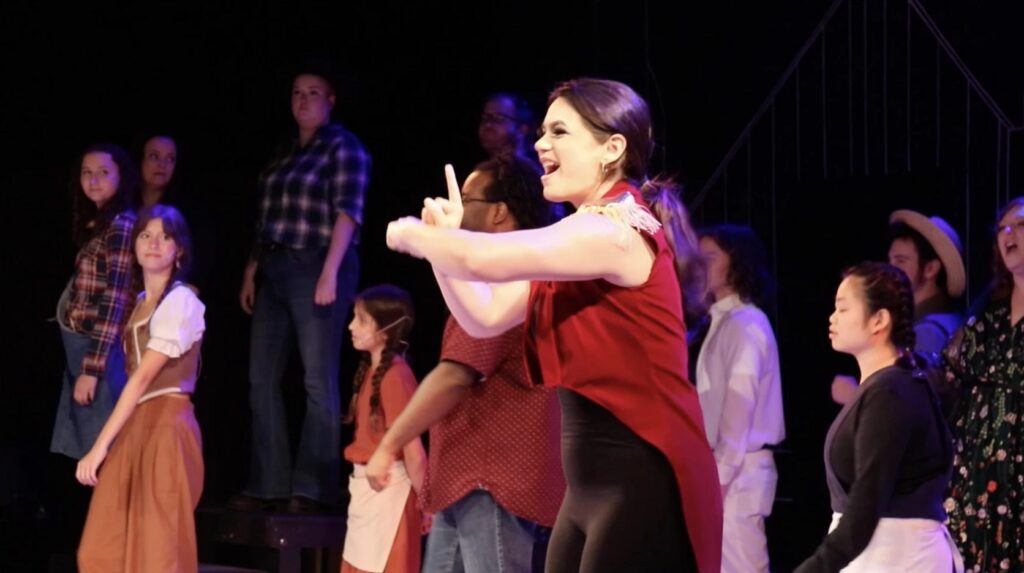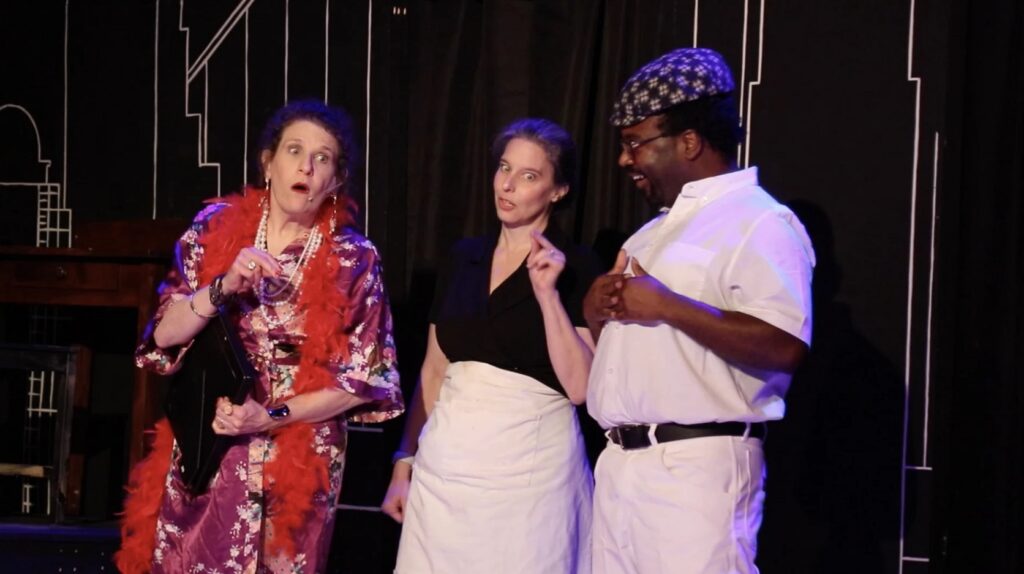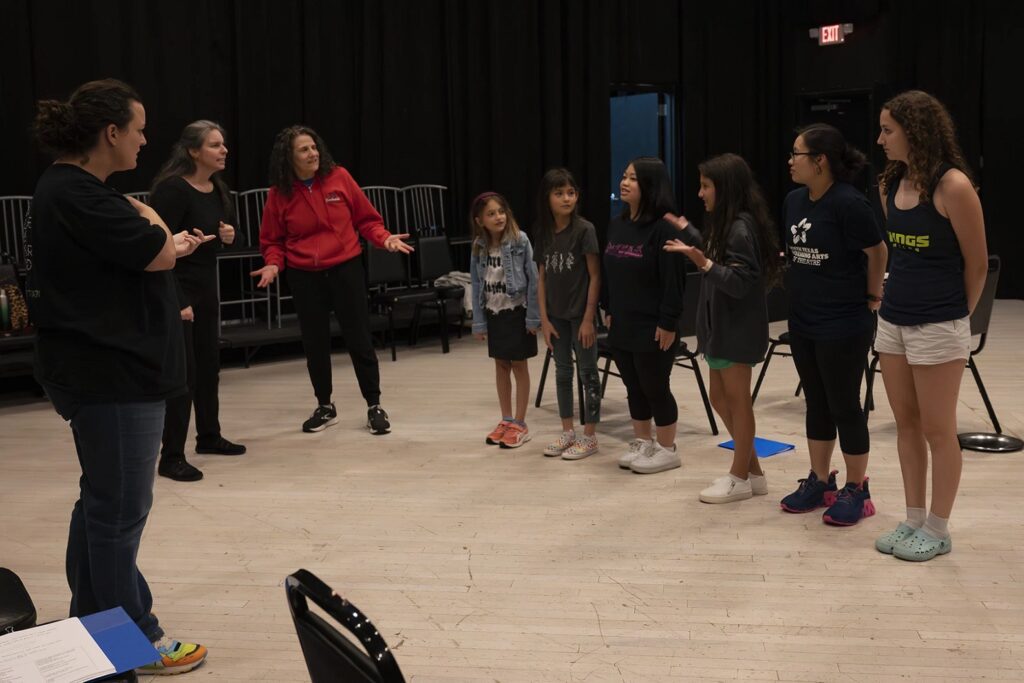North Texas theater organizations rarely cater to the deaf. A new program aims to change that
By Michelle Aslam
On August 17, 2023

The Deaf Theatre Showcase which performed June 30-July 2 at NTPA Willow Bend Center of the Arts in Plano.
Around 15 percent of Americans have trouble hearing, according to the U.S. Department of Health and Human Services. For the almost 70,000 in the Greater Dallas area, performing arts organizations rarely offer disability resources and programming geared towards the deaf and hard-of-hearing community.
North Texas Performing Arts’ new Deaf Theatre program aims to change that, with productions and educational programming by and for the deaf community. The goal is not only for people who are deaf and hard of hearing to enjoy the art form, but to see themselves on stage as performers.
“We want to make sure that they feel like they are at home and with us,” said the program’s director, Daymond Sands, via an American Sign Language interpreter. “They can really build that dream for themselves and with us, they can see the pathway more clearly. Like in ‘The Wizard of Oz,’ I think that NTPA set up that yellow brick road.”

Performers on stage at the North Texas Performing Arts Willow Bend Center of the Arts in Plano for the Deaf Theatre Showcase.
Unfortunately, North Texas has a long way to go to make the arts more accessible, said Darrell Rodenbaugh, CEO of NTPA. Programs like this one may be a start, not only for the Dallas-Fort Worth area, but for the region.
“There’s a nationally known program on the West Coast. There’s one in the D.C. area. But there’s really nothing in the middle of the country,” Rodenbaugh said. “And our objective is to create that sort of beachhead for theater in the middle part of the country.”
The Deaf Theatre initiative launched last summer with a pilot theater camp program for children. The initiative led to the program’s first performance, “Deaf Theatre Showcase: A Union of Hands and Voices.” The showcase featured a diverse cast of 33 hearing and non-hearing performers ages 8 and above.

Performers preparing for a show with the North Texas Performing Arts Deaf Theatre in June.
The Deaf Theatre’s upcoming programming includes youth camps, a Christmas show in November, and other ASL-interpreted performances throughout the year.
“What I think is unique about this is we’ve created a board of directors that is made up of either individuals who are themselves deaf, or they have a son or daughter family member who is deaf,” Rodenbaugh said. “It’s not the hearing population trying to dictate what the deaf community needs or wants. It is truly the deaf community coming together and saying, this is what we want to do. This is the path we need to take. These are the shows that we want to do.”
This piece was republished from KERA News.